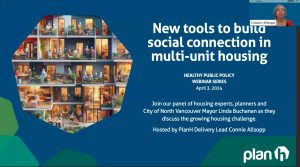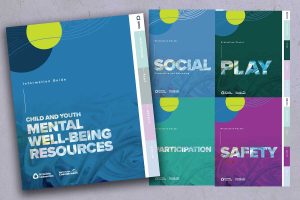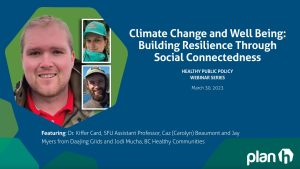Building Healthy Communities together.
Watch our latest PlanH webinar:
New tools to build social connection in multi-unit housing
About Us
BC Healthy Communities is a province-wide not-for-profit organization that facilitates the ongoing development of healthy, thriving and resilient communities. We provide a range of resources, programs, funding and fee-for-service offerings that support multi-sectoral groups to collaborate around a shared vision for a common purpose.
Our Services
We offer a range of services that reflect our interdisciplinary team’s expertise in planning, public health, and community engagement. Our service model is not linear – rather, it reflects the continuous process of improving and strengthening community health and well-being through policy and programs.



